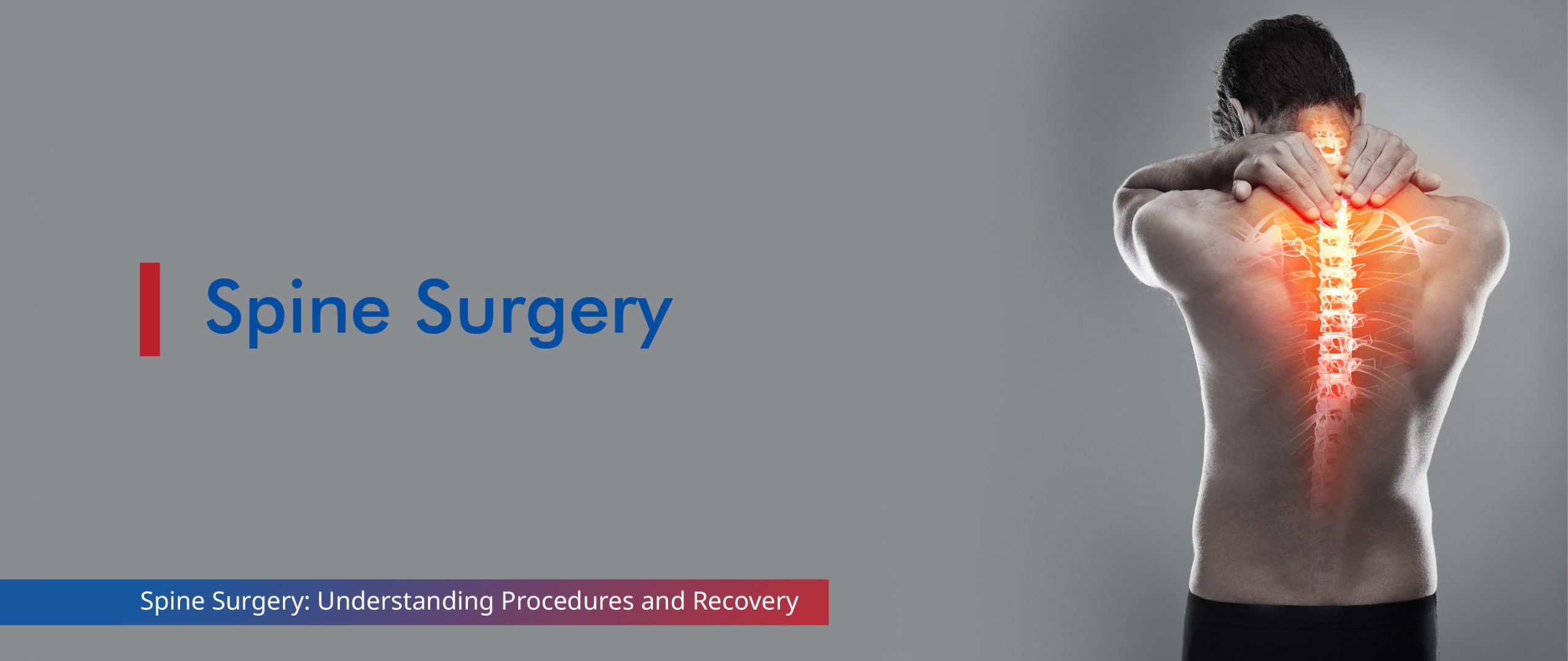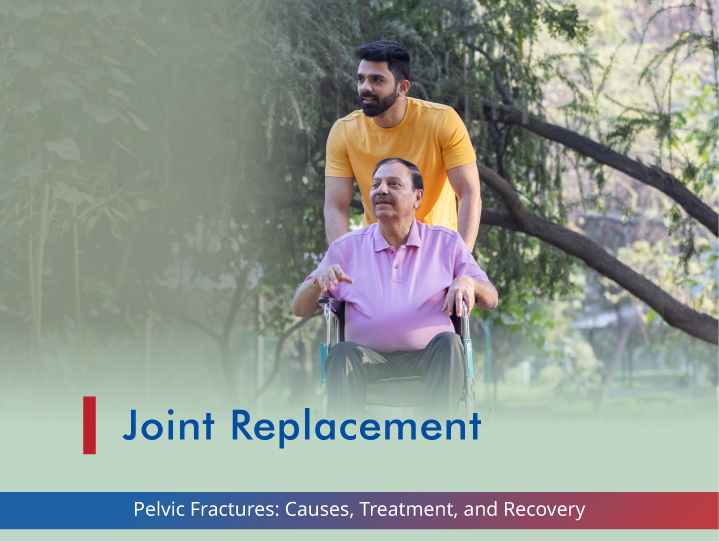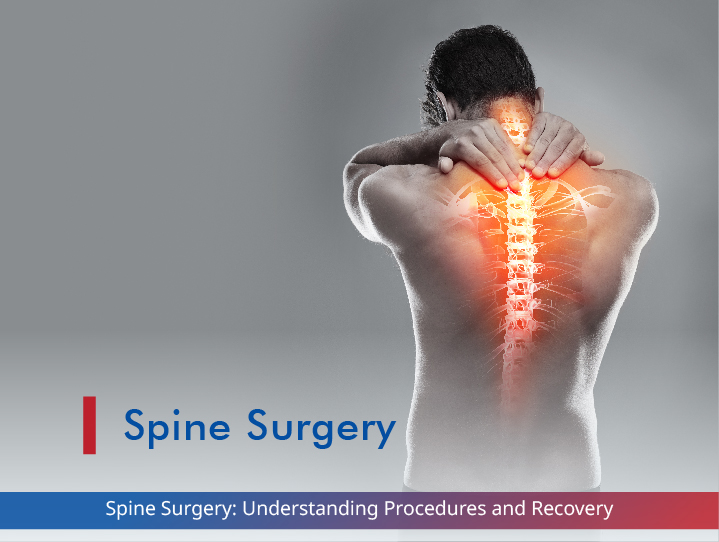Introduction to Spine Surgery
One of the most complicated and life-changing medical procedures, spine surgery, is designed to address various conditions affecting the spine. From herniated discs to spinal deformities, these surgeries aim to alleviate pain, restore function, and provide better quality of life for patients suffering from debilitating spinal issues. With advancing medical technology, spine surgeons now have access to various techniques, including minimally invasive spine surgery, endoscopy and neuromonitoring, allowing for more tailored approaches to individual patient needs.
Common Conditions Requiring Spine Surgery
Several conditions may necessitate spine surgery when conservative treatments fail, including:
- Herniated Discs: When the soft inner material in a spinal disc protrudes through the tougher outer layer, causing nerve compression.
- Spinal Stenosis: Narrowing of the spinal canal can exert pressure on nerves.
- Scoliosis: Abnormal curvature of the spine that may require surgical correction.
- Degenerative Disc Disease: Breakdown of spinal discs leading to pain and instability.
- Spondylolisthesis: Develops when one vertebra slips forward over the one below it, leading to back pain, leg pain, and nerve damage.
- Spinal Fractures: Often resulting from trauma or osteoporosis.
- Spinal Tumours: Growths that can compress the spinal cord or nerves.
Types of Spine Surgeries
- Spinal Fusion: In this surgical procedure, the surgeon joins two or more vertebrae to stabilize the spine & reduce pain. It’s commonly used for conditions like scoliosis and degenerative disc disease.
- Herniated Disc Surgery: This surgery may involve removing the protruding portion of the disc (discectomy) or the entire disc.
- Laminectomy: Removal of the lamina (back part of the vertebra) to relieve pressure on nerves, often used in cases of spinal stenosis.
- Minimally Invasive Spine Surgery: These techniques use smaller incisions and specialized instruments, potentially leading to faster recovery and less tissue damage.
- Scoliosis Surgery: Corrective procedures to straighten and stabilize the spine in cases of severe curvature.
Preparing for Spine Surgery
Proper preparation is crucial for successful spine surgery outcomes:
- Medical Evaluation: Comprehensive health assessment to ensure fitness for surgery. The doctor will assess the co-existing medical conditions which can adversely affect during anesthesia and suggests measures to optimise them.
- Lifestyle Adjustments: Quitting smoking, managing weight, and optimizing nutrition through dietary adjustments or supplements
- Home Preparation: Arranging for post-surgery care and modifying living spaces for easier mobility.
- Pre-operative Education: Understanding the procedure, expected outcomes, and rehabilitation process.
- Medication Management: Adjusting current medications as advised by the spine surgeon.
Post-surgery Care and Rehabilitation
Recovery from spine surgery is a critical phase:
- Pain Management: The doctor may prescribe medications and other techniques to manage post-surgery pain.
- Physical Therapy: Gradual introduction of exercises to improve strength and flexibility
- Occupational Therapy: Learning new ways to perform daily activities safely.
- Follow-up Appointments: Regular check-ins with the spine surgeon to monitor progress.
- Lifestyle Modifications: Implementing long-term changes to support spine health.
Risks and Potential Complications in Spine Surgeries
While generally safe, spine surgery complications can include:
- Infection (1%): At the site of incision or surgery or deeper within the spine.
- Nerve Dysfunction (1%) : Potential for numbness, weakness, or pain.
- Blood Clots (0.3%): Risk of deep vein thrombosis or pulmonary embolism.
- Spinal Fluid Leak: Rare but possible complication requiring additional treatment.
Advances in Spine Surgery Techniques
The field of spine surgery is continually evolving:
- Robotic-assisted Surgery: Enhancing precision in procedures like spinal fusion.
- Artificial Disc Replacement: An alternative treatment modality to spinal fusion for certain conditions
- Endoscopic Techniques: Allowing for even less invasive approaches.
- 3D-printed Implants: Customized solutions for complex spinal deformities.
Long-term Outcomes and Lifestyle Considerations
Successful spine surgery can significantly improve quality of life, but long-term considerations include:
- Maintaining a Healthy Body Weight: To decrease stress on the spine.
- Regular Exercise: Focusing on core strength & flexibility.
- Ergonomic Awareness: Proper posture and body mechanics in daily activities.
- Ongoing Physical Therapy: Continuing exercises to support spinal health.
- Regular Check-ups: Monitoring long-term outcomes and addressing any new issues promptly.
Conclusion
Spine surgery represents a significant medical intervention that can improve functions in those suffering from various spinal conditions. The decision to have a spine surgery should be made in close consultation with a qualified spine surgeon, considering all available options and potential outcomes. With ongoing advancements in surgical methods and technology, the field of spine surgery continues to offer new hope for patients seeking relief from chronic spinal issues.
FAQs
What is the most common spine surgery?
The most common spine surgery is spinal fusion, particularly for conditions like degenerative disc disease, scoliosis, and spinal stenosis. This surgical procedure includes joining two or more vertebrae to stabilize the spine and diminish pain.
How serious is spinal surgery?
Spinal surgery is considered a major operation and carries risks like any surgical procedure. However, with modern techniques and experienced surgeons, many spine surgeries are performed safely with good outcomes. The seriousness depends on the specific procedure and the patient’s overall health.
What is the recovery time for spine surgery?
Recovery time varies and depends on the type of surgery and individual factors. After minimally invasive spinal procedures, patients may return to light activities within a few weeks. More complex surgeries like spinal fusion may require several months for full recovery. Generally, patients can expect a 4-6 weeks spine surgery recovery period for many spine surgeries before returning to normal activities, with continued improvement over 6-12 months.


















